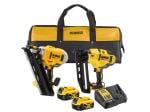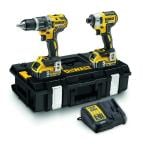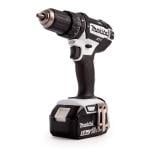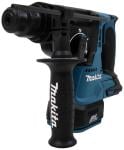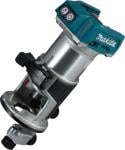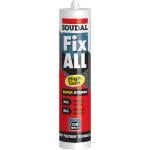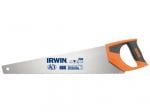Nail Types and Their Uses
Nails are one of the oldest and most essential fasteners used in construction, woodworking, and various other industries. They come in a wide range of types, each designed for specific applications and materials. In this comprehensive guide, we will explore various types of nails, including their descriptions, eatures, applications, available sizes, and common industries where they are used.
Common Nails
Description: Common nails, also known as smooth-shank nails, are the most widely used type of nail. They have a traditional design with a smooth surface and a flat, circular head.
Features: Common nails are versatile and suitable for general-purpose applications in construction and carpentry.
Applications: They are used for framing, decking, siding, general carpentry work, and other applications where strong and reliable fastening is required.
Sizes: Common nails are available in various lengths, typically ranging from 1 to 6 inches.
Industries: Construction, woodworking, home improvement.
Finish Nails
Description: Finish nails are slender nails with a small head that tapers to a point. They are designed for use in finishing work where a neat and inconspicuous appearance is desired.
Features: Finish nails leave minimal visible holes and are ideal for attaching delicate trims and mouldings.
Applications: Finish nails are commonly used for installing crown moulding, baseboards, window casings, and other decorative elements.
Sizes: Finish nails come in various lengths, typically ranging from 1 to 3 inches.
Industries: Carpentry, interior finishing, furniture making.
Brad Nails
Description: Brad nails are very thin nails with small heads, making them almost invisible when driven into the material.
Features: Brad nails are the go-to choice for delicate woodwork and applications where preventing splitting is essential.
Applications: They are used for attaching thin trims, picture frames, and delicate wood pieces.
Sizes: Brad nails are available in lengths from 5/8 to 2 inches.
Industries:Carpentry, woodworking, crafts.
Roofing Nails
Description: Roofing nails are short and wide-headed nails with a sharp point and large, flat heads.
Features: Roofing nails have a weather-resistant finish to prevent corrosion in outdoor applications.
Applications: Roofing nails are specifically used for fastening roofing materials, such as shingles and felt, to the roof deck.
Sizes: Roofing nails are available in various lengths, typically ranging from 3/4 to 2 inches.
Industries:Roofing, construction.
Siding Nails
Description: Siding nails, also known as clout nails, are longer nails with larger heads, specifically designed for attaching siding materials to exterior walls.
Features: Siding nails have a ringed or spiral shank to provide strong holding power in wood and other materials.
Applications: They are used for fastening siding materials like vinyl, fibre cement, and wood to the building's exterior.
Sizes: Siding nails come in lengths ranging from 1 1/2 to 3 inches.
Industries:
Construction, home siding installation.
Box Nails
Description: Box nails are similar to common nails but with a lighter gauge, making them ideal for light framing and general construction.
Features: Box nails are thinner than common nails, which helps prevent splitting in softer woods.
Applications: They are used for framing, sheathing, and general construction where heavy-duty nails may cause splitting.
Sizes: Box nails come in lengths ranging from 1 to 3 1/4 inches.
Industries: Construction, carpentry.
Casing Nails
Description: Casing nails have a slightly larger head than finish nails and are designed for use in attaching window and door casings.
Features: Casing nails have a small head that provides a secure hold without detracting from the overall appearance.
Applications: They are commonly used for installing window and door casings and other decorative mouldings.
Sizes: Casing nails come in lengths ranging from 1 to 2 1/2 inches.
Industries: Carpentry, interior finishing.
Flooring Nails
Description: Flooring nails are specialized nails used for securing hardwood flooring to the subfloor.
Features: Flooring nails have a barbed or fluted shank that helps hold the flooring securely in place.
Applications: They are used for installing solid hardwood flooring and engineered wood flooring.
Sizes: Flooring nails come in lengths ranging from 1 1/2 to 2 1/2 inches.
Industries: Construction, flooring installation.
Concrete Nails
Description: Concrete nails, also known as masonry nails, are made of hardened steel and have a fluted shaft for driving into concrete, brick, or masonry.
Features: Concrete nails have a hardened tip that allows them to penetrate tough materials without bending.
Applications: They are used for fastening wood or metal to concrete, brick, or masonry surfaces.
Sizes: Concrete nails come in lengths ranging from 3/4 to 4 inches.
Industries: Construction, masonry work.
Masonry Nails
Description: Masonry nails, also known as cut nails, are hand-forged nails with a diamond-shaped point designed for attaching wood to masonry surfaces.
Features: Masonry nails have fluted shafts that provide excellent holding power in brick and concrete.
Applications: They are used for fastening furring strips, wooden forms, and other wood pieces to masonry.
Sizes: Masonry nails come in lengths ranging from 1 to 4 inches.
Industries: Construction, masonry work.
Duplex Nails
Description: Duplex nails, also known as scaffold nails, have two heads at the top, making them easy to remove.
Features: Duplex nails are used for temporary fastening or in situations where easy removal is required.
Applications: They are commonly used in scaffolding, formwork, and other temporary construction applications.
Sizes: Duplex nails come in lengths ranging from 1 1/4 to 4 inches.
Industries: Construction, scaffolding.
Drywall Nails
Description: Drywall nails are specifically designed for fastening drywall to wooden studs.
Features: Drywall nails have ringed or spiral shanks that provide a strong grip in gypsum board.
Applications: They are used for attaching drywall sheets to wooden framing in interior wall construction.
Sizes: Drywall nails come in lengths ranging from 1 1/4 to 2 1/2 inches.
Industries:Construction, interior finishing.
Plasterboard Nails
Description: Plasterboard nails have a smooth shank and are used for fixing plasterboard to wooden studs.
Features: Plasterboard nails have a flat head that helps prevent damage to the delicate plasterboard surface.
Applications: They are used for fastening plasterboard sheets to wooden framing in interior wall construction.
Sizes: Plasterboard nails come in lengths ranging from 1 1/4 to 2 1/2 inches.
Industries: Construction, interior finishing.
Flooring Cleats
Description: Flooring cleats are specialized nails used with flooring nailers for securing hardwood flooring.
Features: Flooring cleats have barbed edges that provide a strong grip in hardwood flooring.
Applications: They are used with flooring nailers to install hardwood flooring.
Sizes: Flooring cleats come in lengths ranging from 1 1/2 to 2 inches.
Industries:C onstruction, flooring installation.
Joist Nails
Description: Joist nails are used for fastening floor joists and rafters together.
Features: Joist nails have a larger diameter and length to provide strong support for structural elements.
Applications: They are used in framing and roof construction to attach joists, rafters, and beams.
Sizes: Joist nails come in lengths ranging from 1 1/2 to 4 inches.
Industries:Construction, carpentry.
Hardboard Nails
Description: Hardboard nails have a small, rounded head and are used for fastening hardboard and similar materials.
Features: Hardboard nails have a smooth shank that prevents splitting in delicate materials.
Applications: They are used for attaching hardboard, fiberboard, and thin wood panels.
Sizes: Hardboard nails come in lengths ranging from 3/4 to 1 1/2 inches.
Industries:Construction, carpentry.
Shankless Nails
Description: Shankless nails have no shank and are used for temporary fastening and easy removal.
Features: Shankless nails are easy to remove without leaving visible holes.
Applications: They are used for temporary fixtures and temporary construction elements.
Sizes: Shankless nails come in lengths ranging from 1 to 3 inches.
Industries:Construction, temporary structures.
Ring Shank Nails
Description: Ring shank nails have rings along the shank, providing a strong grip for increased holding power.
Features: Ring shank nails offer superior withdrawal resistance and are less likely to loosen over time.
Applications: They are used for attaching roof sheathing, subflooring, and other structural elements.
Sizes: Ring shank nails come in lengths ranging from 1 to 4 inches.
Industries:Construction, roofing, flooring.
Annular Ring Nails
Description: Annular ring nails have rings that create a ratcheting effect, improving the nail's withdrawal resistance.
Features: Annular ring nails have exceptional holding power, making them suitable for load-bearing applications.
Applications: They are used for securing floorboards, decking, and structural components.
Sizes: Annular ring nails come in lengths ranging from 1 to 4 inches.
Industries:Construction, woodworking.
Tack Nails
Description: Tack nails are small, sharp-pointed nails used for fastening lightweight materials and upholstery.
Features: Tack nails have very fine points for easy insertion into delicate fabrics and materials.
Applications: They are used in upholstery, fabric installation, and crafts.
Sizes: Tack nails come in lengths ranging from 3/8 to 1 inch.
Industries:Upholstery, crafts.
Cut Nails
Description: Cut nails are hand-forged nails with a rectangular cross-section, used for traditional woodworking.
Features: Cut nails have a distinctive look and are often used in historical restoration projects.
Applications: They are used for traditional joinery, restoration work, and rustic furniture.
Sizes: Cut nails come in lengths ranging from 1 to 6 inches.
Industries: Restoration, traditional woodworking.
Corrugated Nails
Description: Corrugated nails have a ribbed shank for enhanced holding power in softwood and light framing.
Features: Corrugated nails provide excellent resistance to withdrawal and are less likely to work loose.
Applications: They are used for light framing, bracing, and general carpentry.
Sizes: Corrugated nails come in lengths ranging from 1 1/2 to 4 inches.
Industries: Construction, carpentry.
Hot-Dipped Galvanized Nails
Description: Hot-dipped galvanized nails are coated with zinc to increase corrosion resistance in outdoor applications.
Features: Galvanized nails are suitable for use in outdoor environments and for applications exposed to moisture.
Applications: They are used for outdoor construction, roofing, and fencing.
Sizes: Hot-dipped galvanized nails come in various lengths, depending on the type of nail.
Industries: Construction, roofing, fencing.
Electro-Galvanized Nails
Description: Electro-galvanized nails have a thin zinc coating for some level of corrosion protection.
Features: Electro-galvanized nails offer moderate resistance to rust and are often used indoors.
Applications: They are used for indoor construction and woodworking projects.
Sizes: Electro-galvanized nails come in various lengths, depending on the type of nail.
Industries: Construction, woodworking.
Stainless Steel Nails
Description: Stainless steel nails are made of corrosion-resistant stainless steel, suitable for outdoor and marine applications.
Features: Stainless steel nails do not rust and offer excellent durability in harsh environments.
Applications: They are used in coastal areas, marine construction, and outdoor projects.
Sizes: Stainless steel nails come in various lengths, depending on the type of nail.
Industries: Marine construction, outdoor projects.
Aluminium Nails
Description: Aluminum nails are lightweight and resistant to corrosion, making them ideal for specific applications.
Features: Aluminum nails are non-magnetic and suitable for environments where metal corrosion is a concern.
Applications: They are used in outdoor construction and in situations where metal compatibility is important.
Sizes: Aluminum nails come in various lengths, depending on the type of nail.
Industries: Construction, outdoor applications.
Copper Nails
Description: Copper nails are known for their decorative properties and excellent corrosion resistance.
Features: Copper nails offer both functional and aesthetic benefits in certain applications.
Applications: They are used for decorative elements, boat building, and certain construction projects.
Sizes: Copper nails come in various lengths, depending on the type of nail.
Industries: Decorative woodworking, boat building.
Square Nails
Description: Square nails have a square cross-section and are used for historical restoration and traditional woodworking.
Features: Square nails provide an authentic look for period projects and restoration work.
Applications: They are used in historical preservation and traditional woodworking projects.
Sizes: Square nails come in lengths ranging from 1 to 5 inches.
Industries: Historical restoration, traditional woodworking.
Oval Nails
Description: Oval nails have an oval-shaped head, providing a decorative finish in trim work.
Features: Oval nails offer an elegant appearance and are designed for applications where aesthetics matter.
Applications: They are used for attaching decorative mouldings, trims, and picture frames.
Sizes: Oval nails come in various lengths, depending on the type of nail.
Industries: Carpentry, interior finishing.
Slating Nails
Description: Slating nails have a large, flat head, used for fastening roof slates.
Features: Slating nails provide secure attachment for roof slates without causing damage.
Applications: They are used for installing roof slates and other roofing materials.
Sizes: Slating nails come in lengths ranging from 1 1/2 to 3 inches.
Industries: Roofing, construction.
Upholstery Nails
Description: Upholstery nails, also known as decorative nails or upholstery tacks, are used for upholstery and furniture finishing.
Features: Upholstery nails have decorative heads that add a stylish touch to furniture and upholstery.
Applications: They are used for attaching fabric to furniture frames and for decorative purposes.
Sizes: Upholstery nails come in various lengths and head designs for customization.
Industries: Upholstery, furniture making.
Flat Cap Roofing Nails
Description: Flat cap roofing nails have a flat, wide head for securing roofing materials.
Features: Flat cap roofing nails provide excellent holding power for roofing materials.
Applications: They are used for attaching roofing felt, underlayment, and shingles.
Sizes: Flat cap roofing nails come in lengths ranging from 1 to 2 1/2 inches.
Industries: Roofing, construction.
Conical Roofing Nails
Description: Conical roofing nails have a conical head and are designed for roof tile installation.
Features: Conical roofing nails have a large head that securely holds roof tiles in place.
Applications: They are used for attaching roof tiles in tile roofing systems.
Sizes: Conical roofing nails come in lengths ranging from 1 to 3 inches.
Industries: Roofing, construction.
Clout Nails
Description: Clout nails are short, flat-headed nails used for attaching roofing felt and other roofing materials.
Features: Clout nails have a wide head that provides excellent holding power.
Applications: They are used for attaching roofing felt, shingles, and other roofing materials.
Sizes: Clout nails come in lengths ranging from 1/2 to 1 inch.
Industries: Roofing, construction.
Cut Flooring Brads
Description: Cut flooring brads are short, fine-gauge nails used for securing tongue-and-groove flooring.
Features: Cut flooring brads have a small head that does not interfere with the flooring groove.
Applications: They are used for fastening tongue-and-groove flooring without splitting the tongue.
Sizes: Cut flooring brads come in lengths ranging from 5/8 to 1 1/2 inches.
Industries: Flooring installation, construction.
Lost-Head Nails
Description: Lost-head nails have a head that is punched below the surface, allowing for wood filling over the nail.
Features: Lost-head nails are used for a seamless finish without visible nail heads.
Applications: They are used for finishing work, cabinetry, and furniture making.
Sizes: Lost-head nails come in various lengths, depending on the type of nail.
Industries: Carpentry, woodworking.
Panel Pins
Description: Panel pins are fine nails used for fixing thin or delicate materials.
Features: Panel pins have a sharp point for easy insertion into delicate materials.
Applications: They are used for attaching thin mouldings, trims, and lightweight materials.
Sizes: Panel pins come in lengths ranging from 5/8 to 1 1/2 inches.
Industries: Carpentry, crafts.
Gun Nails
Description: Gun nails are collated nails used with nail guns for rapid and efficient fastening.
Features: Gun nails are compatible with specific nail guns for quick and precise installation.
Applications: They are used for various construction and woodworking projects with nail guns.
Sizes: Gun nails come in various lengths, depending on the type of nail and the nail gun used.
Industries:Construction, woodworking.
Masonry Fluted Nails
Description: Masonry fluted nails have flutes to increase holding power in masonry materials.
Features: Masonry fluted nails have a unique design to provide a secure grip in masonry surfaces.
Applications: They are used for attaching wood to brick, concrete, and other masonry materials.
Sizes: Masonry fluted nails come in lengths ranging from 1 1/2 to 3 inches.
Industries: Construction, masonry work.
Needlepoint Nails
Description: Needlepoint nails are fine nails with a sharp, needle-like point, used for detailed woodworking.
Features: Needlepoint nails have a very sharp point for easy penetration into wood.
Applications: They are used for precise and detailed woodworking applications.
Sizes: Needlepoint nails come in lengths ranging from 1/2 to 1 1/2 inches.
Industries: Woodworking, crafts.
Joinery Nails
Description: Joinery nails are used for joinery and framing applications.
Features: Joinery nails are designed to create strong and durable connections in woodworking.
Applications: They are used for assembling furniture, cabinetry, and structural woodworking.
Sizes: Joinery nails come in various lengths, depending on the type of nail.
Industries: Carpentry, woodworking.
Carpet Tacks
Description: Carpet tacks are small nails with large heads used for securing carpets.
Features: Carpet tacks have a wide head that securely holds carpeting in place.
Applications: They are used for installing carpets and securing carpet edges.
Sizes: Carpet tacks come in lengths ranging from 3/4 to 1 1/2 inches.
Industries: Flooring installation, interior finishing.
Glazing Brads
Description: Glazing brads are small, fine-gauge nails used for fixing glazing bars.
Features: Glazing brads have a small head that does not interfere with the glass or glazing material.
Applications: They are used for securing glass and glazing materials in windows and doors.
Sizes: Glazing brads come in lengths ranging from 3/4 to 1 1/2 inches.
Industries: Window and door manufacturing, carpentry.
Hardened Nails
Description: Hardened nails have a hardened surface for increased durability and driving into hard materials.
Features: Hardened nails are designed to withstand tough driving conditions.
Applications: They are used for fastening wood to hard materials, such as metal or concrete.
Sizes: Hardened nails come in various lengths, depending on the type of nail.
Industries: Construction, metalworking.
Nailer Nails
Description: Nailer nails are designed for use with pneumatic nailers.
Features: Nailer nails have a specific collation that fits various nail gun types.
Applications: They are used with nail guns for quick and efficient fastening in various projects.
Sizes: Nailer nails come in various lengths, depending on the type of nail gun used.
Industries: Construction, woodworking.
Roofing Clout Nails
Description: Roofing clout nails have a larger head and are used for fixing roofing felt and shingles.
Features: Roofing clout nails provide a wide surface area for securely fastening roofing materials.
Applications: They are used for attaching roofing felt, shingles, and other roofing materials.
Sizes: Roofing clout nails come in lengths ranging from 1 to 3 inches.
Industries: Roofing, construction.
T-Nails
Description: T-nails are shaped like the letter "T" and are used with specialized T-nailers for certain applications.
Features: T-nails are compatible with specific nail guns and are used for specialized fastening.
Applications: They are used for picture framing and other specific woodworking applications.
Sizes: T-nails come in various lengths, depending on the type of nail gun used.
Industries: Woodworking, picture framing.
Lath Nails
Description: Lath nails are used for fastening lath or thin wood strips.
Features: Lath nails have a smaller head for securing thin materials without splitting.
Applications: They are used for attaching lath, furring strips, and other thin materials.
Sizes: Lath nails come in lengths ranging from 1 to 2 inches.
Industries: Construction, carpentry.
Double-Headed Nails
Description: Double-headed nails have two heads for easy removal.
Features: Double-headed nails are used for temporary fastening or in situations where easy removal is required.
Applications: They are commonly used in scaffolding, formwork, and other temporary construction applications.
Sizes: Double-headed nails come in lengths ranging from 1 1/4 to 4 inches.
Industries: Construction, scaffolding.
Oiled Nails
Description: Oiled nails are coated with oil to reduce friction during driving and improve holding power.
Features: Oiled nails are used in applications where smooth driving and increased holding capacity are essential.
Applications: They are used in woodworking, carpentry, and general construction.
Sizes: Oiled nails come in various lengths, depending on the type of nail.
Industries: Construction, carpentry.
Conclusion
In this comprehensive guide, we have explored fifty different types of nails, each with its Features and applications. From common nails for general construction to specialized nails for specific tasks, nails play a crucial role in various industries and projects. Selecting the right nail type for your specific application ensures a secure and reliable connection, making your construction or woodworking projects a success. Whether you're framing, finishing, or working with delicate materials, this guide provides you with the knowledge to choose the appropriate nail for the job.


